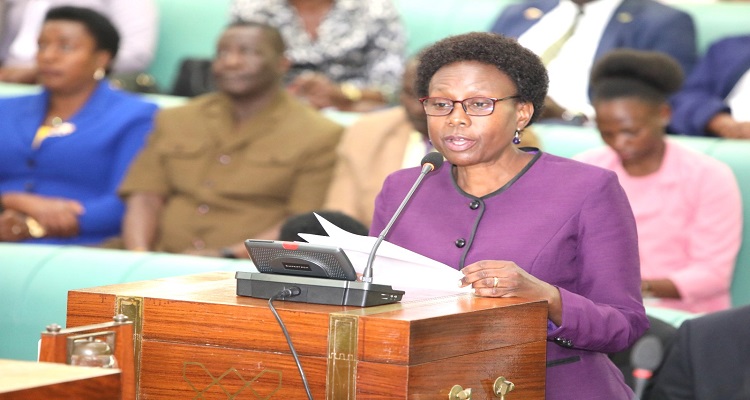The Uganda National Oil Company (UNOC) has announced a profit of 37.6 billion Shillings, surpassing their projected revenue of 6.989 billion Shillings.
This revelation emerged during a meeting held on Monday, May 27, 2024, between officials from UNOC and Members of the Public Accounts Committee (PAC). The meeting focused on considering the Auditor General’s report on UNOC’s financial statements for the fiscal year ending on June 30, 2023.
The recent audit of UNOC revealed a remarkable financial performance that captured the attention of the committee.
Initially expected to generate 6.989 billion Shillings in revenue, UNOC concluded the fiscal year with an impressive 37.6 billion Shillings. This significant surplus was attributed to strategic investments in treasury bills and fixed deposits.
The Auditor General’s report emphasized that this windfall resulted from UNOC’s decision to invest a portion of its funds in the money markets. These investments were not initially factored into the budget estimates due to the unpredictability of interest rates and project expenditures.
Consequently, UNOC witnessed a surplus of 30.686 billion Shillings above the approved revenue estimates.
While some Members of Parliament commended UNOC’s strategic financial decisions, others, led by the Chairperson of the committee, Muwanga Kivumbi, raised concerns regarding the transparency and framework of these investments.
The controversy ignited a debate surrounding UNOC’s financial practices and the oversight of public funds.
UNOC’s chief finance officer, Emmanuel Mugagga, clarified that the additional revenue stemmed from interest income on fixed deposits. He explained that these deposits included funds from the East African Crude Oil Pipeline (EACOP) project, temporarily invested while awaiting project cash calls.
The revelation of the surplus evoked mixed reactions from Members of Parliament. Some questioned the lack of transparency and the absence of this investment strategy in the initial budget plans.
Herbert Tayebwa, representing Kashongi County, expressed concerns about UNOC’s sudden decision to invest in treasury bills, questioning why it wasn’t planned earlier.
Susan Amero, the Amuria District Woman Representative, commended UNOC for their transparency in revealing the surplus, highlighting the potential for misuse if kept undisclosed.
Patrick Oshabe, representing Kassanda North, raised concerns about the temptation for UNOC to invest more project funds for profit, questioning the legal basis of such decisions.
Mugagga clarified that the decision to invest was cleared by the board and made considering the non-immediacy of the funds, despite being paid earlier by the government.
UNOC’s chief executive officer, Proscovia Nabbanja, explained that they had anticipated collecting 6.989 billion Shillings based on various revenue streams. She stated that the surplus arose from investing funds allocated for the East African Crude Oil Pipeline (EACOP) project, anticipating cash calls.
The Auditor General’s report recommended that the accounting officer revise the approved budget when significant financial changes occur, aiming to ensure transparent communication and approval of all revenue-generating activities by the appropriate authorities.




















